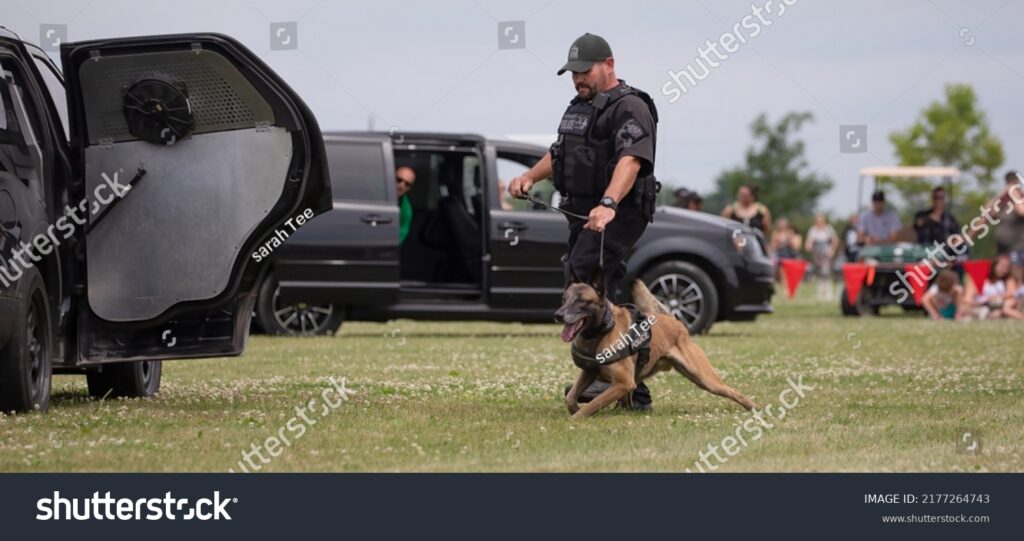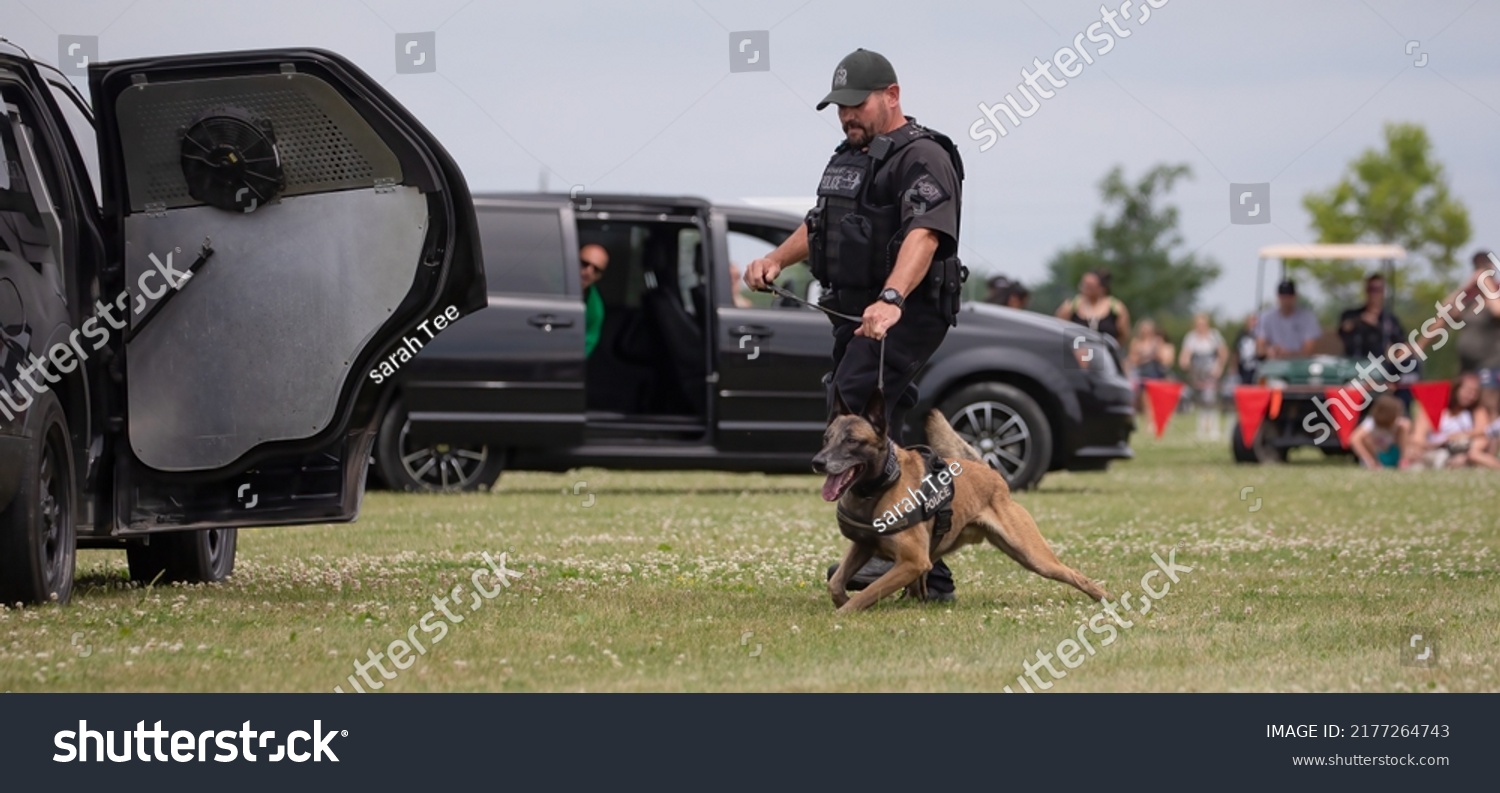
Canada K9: Exploring the World of Canadian Working Dogs
The term “Canada K9” encompasses a diverse range of working dogs across the Canadian landscape. From law enforcement to search and rescue, these canine companions play a crucial role in various sectors, contributing significantly to public safety and national security. Understanding the specific roles, breeds, and training involved with Canada K9 units provides valuable insight into the dedication and expertise required in this specialized field.
The Role of K9 Units in Canada
K9 units in Canada are integral to numerous organizations, including the Royal Canadian Mounted Police (RCMP), provincial and municipal police forces, border services, and search and rescue teams. Their capabilities extend far beyond basic obedience, involving specialized training in areas such as:
- Drug Detection: Trained to identify various narcotics, these dogs are essential in combating drug trafficking.
- Explosives Detection: Detecting explosives requires highly specialized training, ensuring safety in high-risk environments.
- Search and Rescue: Locating missing persons, often in challenging terrain, is a critical function.
- Tracking: Following scent trails to apprehend suspects or locate individuals.
- Protection: Providing security for officers and the public.
- Cadaver Detection: Assisting in the recovery of human remains.
The effectiveness of Canada K9 units relies heavily on the bond between the dog and its handler, built on trust, mutual respect, and consistent training. [See also: RCMP Police Dog Service Training Centre]
Popular Canada K9 Breeds
While various breeds can excel as working dogs, certain breeds are more commonly selected for their specific traits and aptitudes. Some of the most prevalent Canada K9 breeds include:
- German Shepherd: Renowned for their intelligence, trainability, and loyalty, German Shepherds are a staple in police and military K9 units worldwide. Their versatility makes them suitable for a wide range of tasks.
- Belgian Malinois: Increasingly popular due to their high energy levels, agility, and strong work ethic, Belgian Malinois are often preferred for demanding roles such as explosives detection and apprehension.
- Labrador Retriever: Known for their exceptional scent detection abilities and gentle temperament, Labradors are frequently employed in search and rescue, drug detection, and explosives detection.
- Dutch Shepherd: Similar to the Belgian Malinois, Dutch Shepherds are intelligent, athletic, and eager to please, making them excellent candidates for police and military work.
- Bloodhound: Unmatched in their tracking abilities, Bloodhounds are invaluable in locating missing persons and tracking suspects over long distances.
The selection of a specific breed for Canada K9 work depends on the specific requirements of the role and the handler’s experience. Each breed brings unique strengths to the table, contributing to the overall success of the K9 unit.
Training and Certification of Canada K9 Units
Becoming a certified Canada K9 unit is a rigorous process that requires extensive training and dedication. The training regime typically involves several stages, including:
- Basic Obedience: Establishing a foundation of obedience and control is paramount.
- Specialized Training: Dogs undergo specialized training in their designated area, such as drug detection or search and rescue.
- Handler Training: Handlers learn how to effectively communicate with their dogs, interpret their behavior, and maintain their training.
- Certification: Upon completion of training, K9 units must pass certification exams to demonstrate their proficiency.
- Ongoing Training: Regular training is essential to maintain skills and adapt to new challenges.
The RCMP Police Dog Service Training Centre (PDSTC) in Innisfail, Alberta, is a primary training facility for police dogs in Canada. This facility provides comprehensive training programs for both dogs and handlers, ensuring that they meet the highest standards of performance. The PDSTC also plays a crucial role in breeding and raising dogs specifically for police work. [See also: Police Dog Service Training Centre Programs]
Challenges and Rewards of Working with Canada K9s
Working with Canada K9s presents both challenges and rewards. Handlers face demanding work schedules, exposure to hazardous environments, and the emotional toll of dealing with difficult situations. However, the rewards are equally significant. The satisfaction of saving a life, apprehending a criminal, or providing comfort to those in need is immeasurable.
The bond between a handler and their K9 partner is unique and unbreakable. It is a relationship built on trust, respect, and unwavering loyalty. These partnerships are essential for the success of Canada K9 units and the safety of the communities they serve.
Ethical Considerations in Canada K9 Operations
The use of Canada K9 units raises important ethical considerations. Ensuring the humane treatment of working dogs is paramount, and organizations must adhere to strict guidelines regarding training methods, working conditions, and retirement policies. Regular veterinary care and proper nutrition are essential to maintaining the health and well-being of these animals.
Additionally, the deployment of K9 units must be carefully considered to avoid discriminatory practices or the violation of civil rights. Transparency and accountability are crucial to maintaining public trust in K9 operations. Policies must be in place to address potential biases and ensure that K9 units are used fairly and effectively.
The Future of Canada K9 Units
The future of Canada K9 units is likely to involve continued advancements in training techniques, technology, and breed selection. As new challenges emerge, such as cybercrime and terrorism, K9 units will need to adapt and develop new skills. Research into canine cognition and behavior will continue to inform training methods and improve the effectiveness of K9 operations.
Collaboration between different agencies and organizations will also be crucial to maximizing the impact of Canada K9 units. Sharing best practices, resources, and expertise will help to ensure that these valuable assets are used effectively and efficiently. The dedication and commitment of handlers, trainers, and support staff will continue to be the driving force behind the success of Canada K9 units.
Canada K9 in Search and Rescue
Canada’s vast and often unforgiving terrain makes search and rescue operations particularly challenging. Canada K9 units specializing in search and rescue are crucial in locating missing hikers, skiers, and individuals lost in remote areas. These dogs are trained to detect human scent over long distances and in difficult weather conditions. Their ability to quickly and efficiently locate missing persons can be the difference between life and death.
Search and rescue Canada K9 teams often work in close collaboration with other emergency services, such as helicopter crews and ground search teams. Their expertise is invaluable in coordinating search efforts and maximizing the chances of a successful rescue. The training required for search and rescue dogs is extensive, involving specialized scent detection techniques, navigation skills, and the ability to work in challenging environments.
Canada K9 and Law Enforcement
Law enforcement agencies across Canada rely heavily on Canada K9 units to combat crime and maintain public safety. These dogs are trained to perform a wide range of tasks, including drug detection, explosives detection, tracking, and apprehension. Their presence can deter criminal activity and provide a valuable resource for officers in the field.
The use of Canada K9 units in law enforcement is subject to strict regulations and guidelines to ensure that they are used responsibly and ethically. Handlers are required to undergo extensive training to learn how to effectively control their dogs and prevent the use of excessive force. Regular audits and reviews are conducted to ensure compliance with these regulations.
The Bond Between Canada K9 and Handler
The relationship between a Canada K9 and its handler is unlike any other. It is a bond built on trust, mutual respect, and unwavering loyalty. Handlers spend countless hours training and working with their dogs, developing a deep understanding of their personalities, strengths, and weaknesses. This close bond is essential for the success of Canada K9 units.
Handlers are responsible for the care and well-being of their dogs, ensuring that they receive proper nutrition, exercise, and veterinary care. They also provide emotional support and companionship, creating a strong and lasting bond. The dedication and commitment of handlers are essential to the success of Canada K9 units.
Conclusion
Canada K9 units play a vital role in ensuring public safety and security across the country. From law enforcement to search and rescue, these canine companions contribute significantly to various sectors. Their specialized training, unwavering dedication, and unique bond with their handlers make them an invaluable asset to Canadian society. As technology and training methods continue to evolve, Canada K9 units will undoubtedly remain at the forefront of innovation in the field of working dogs.

